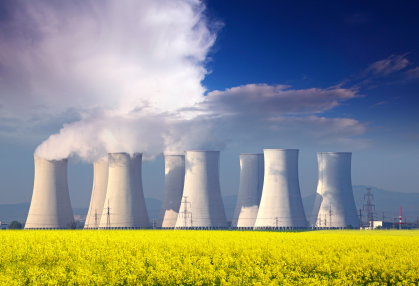Down and Out with CCS ?
Often seen as the panacea for the coal industry, Carbon Capture and Storage (CCS) has in fact managed very little to get excited about over the last five years. Globally there are less than 70 large scale integrated CCS projects and the majority of these are at early stages of development with uncertain futures. Although most large scale CCS projects are in the power generation sector there has been a 29% reduction over the last year. In the UK the situation is in a very sorry state. Back in 2007 DECC announced a large scale CCS Demonstration programme that would look to educate and stimulate world energy and environmental campaigns that CO2 can be captured and then safely transported, stored or even utilised in enhanced oil recovery projects.
Technology and equipment supply chains to be fair lost interest some time ago when it became clear that national support in many countries was waning as more serious and immediate issues of security of fuel supply and price of short to medium term energy loomed.
Recent political attitudes towards low carbon technology in the UK have not helped. E.ON and the ScottishPower led consortium both pulled the plug on proposed CCS schemes at Kingsnorth and Longannet respectively. The latter did at least make it to the Front End Engineering Design (FEED) stage and most of the results were disseminated to interested UK parties. However the salient parts of the Longannet study involving technical and legal issues over CO2 transportation pipelines, detailed costing analyses and liability issues for subsea storage were kept close to source.
The individual technical aspects of CCS are not particularly daunting. We know how to scrub flue gases and remove CO2, we operate high pressure gas transportation pipelines all over the world; we even know how to develop and utilize enhanced oil recovery. The real challenges for CCS involve integration of the parts. The technical, legal and operational complexities here are significant. Who is responsible for loss of CO2 pressure when EOR cannot operate and oil production drops, how does the carbon capture plant impact on generating efficiency when the station is scheduled in the Capacity Mechanism under the proposed new UK market reforms? Who is liable for CO2 leaks and any marine environmental impact?
The UK government has failed miserably on the first CCS Demo Programme and was much derided. The second attempt is ongoing although successive governments seem to be just kicking the can further down the road. Recent announcements of R&D investment for the White Rose scheme at Drax indicate some hope.
Some recent US studies indicate that CCS will take 20 to 30 years from concept to full scale effective deployment and that costs are significant, possibly reducing plant efficiency by over 25%. Such numbers are not attractive to private generating companies. It is also reasonable to state that other low carbon technologies can be successfully implemented within 30 years reducing the requirement for coal based CCS.
Will UK plc really benefit from the CCS Demonstration Programme? For most SMEs and even higher tier suppliers and service providers, CCS projects are not really on the radar. The EPC contractors and OEM design companies have taken a keen interest and because they can, they have 3-D modelled, desktop designed and taken new processes with fancy new brand names to pilot scale. None of these players are true UK plc companies. It does seem that political malaise and a private sector lacking critical size, a joined-up approach and commercial foresight will fail to reap the rewards if CCS ever does come to fruition.
The use of fossil fuels and in particular, coal in global power generation will remain very high for many decades. China and India are progressing ambitious power plant construction schedules and the majority of these will be emissions unabated. Global warming is a known if not fully understood concept. Humanity will always push the status quo to the limit before invoking radical reform. Surely that limit on fossil fuels based energy systems is rapidly closing.


![iStock_000017108886XSmall[1]](https://prgenergy.wordpress.com/wp-content/uploads/2013/11/istock_000017108886xsmall1.jpg?w=373&h=224)
![iStock_000023165646XSmall[1]](https://prgenergy.wordpress.com/wp-content/uploads/2013/10/istock_000023165646xsmall1.jpg?w=300&h=118)
![iStock_000006504204XSmall[1]](https://prgenergy.wordpress.com/wp-content/uploads/2013/10/istock_000006504204xsmall1.jpg?w=300&h=141)
Recent Comments